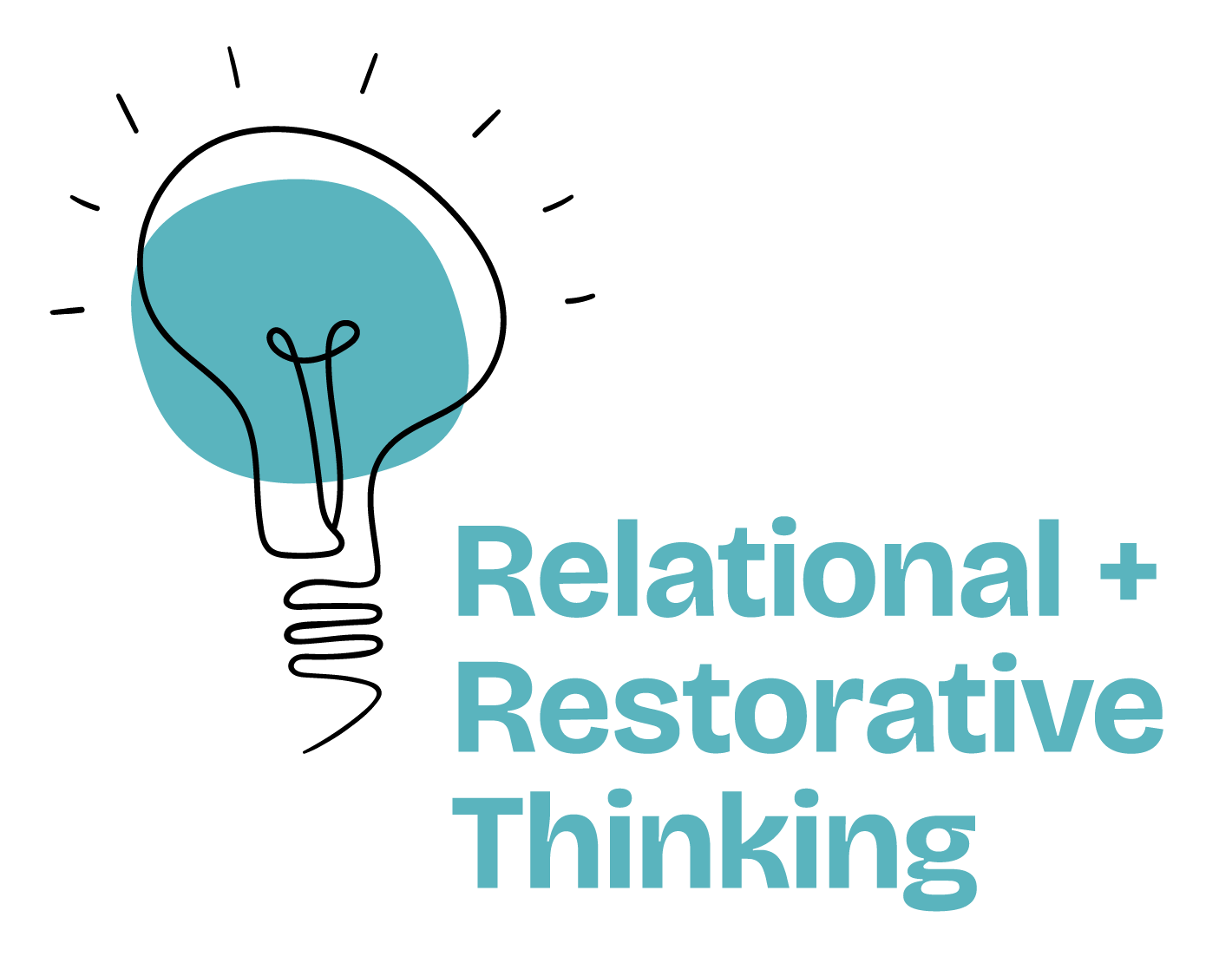Blended learning options to foster relational and restorative practice.
Relational and Restorative Thinking Resources and Courses
These resources and courses help to introduce and embed relational and restorative practice. Please get in touch to tell us about your strengths, needs and intended outcomes and we’ll tailor our input and resources to help you get there!
Relational Leadership online course
Flexible 12-month online course, suitable for leaders at all levels, with start dates throughout 2026. Download our brochure here.
The new NHS Leadership and Management Framework is a commitment within the 10-Year Health Plan, aimed at strengthening leadership to drive service transformation, improve patient safety, and foster a positive culture. It directly responds to the 2022 Messenger Review and 2019 Kark Review.
This is a clear call for change, specifically in the ways we work together, and the new framework sets this out clearly, with detail.
Relational and restorative practice (RRP) has a key part to play in facilitating and enabling this change. RRP asks us to focus on the detail of our relationships at work: how we hold each other to account; say what we see; problem-solve collectively; challenge and support each other. This course invites leaders and managers to try new ways of communicating and connecting.
Contact Lesley for course dates: lesley@restorativethinking.co.uk
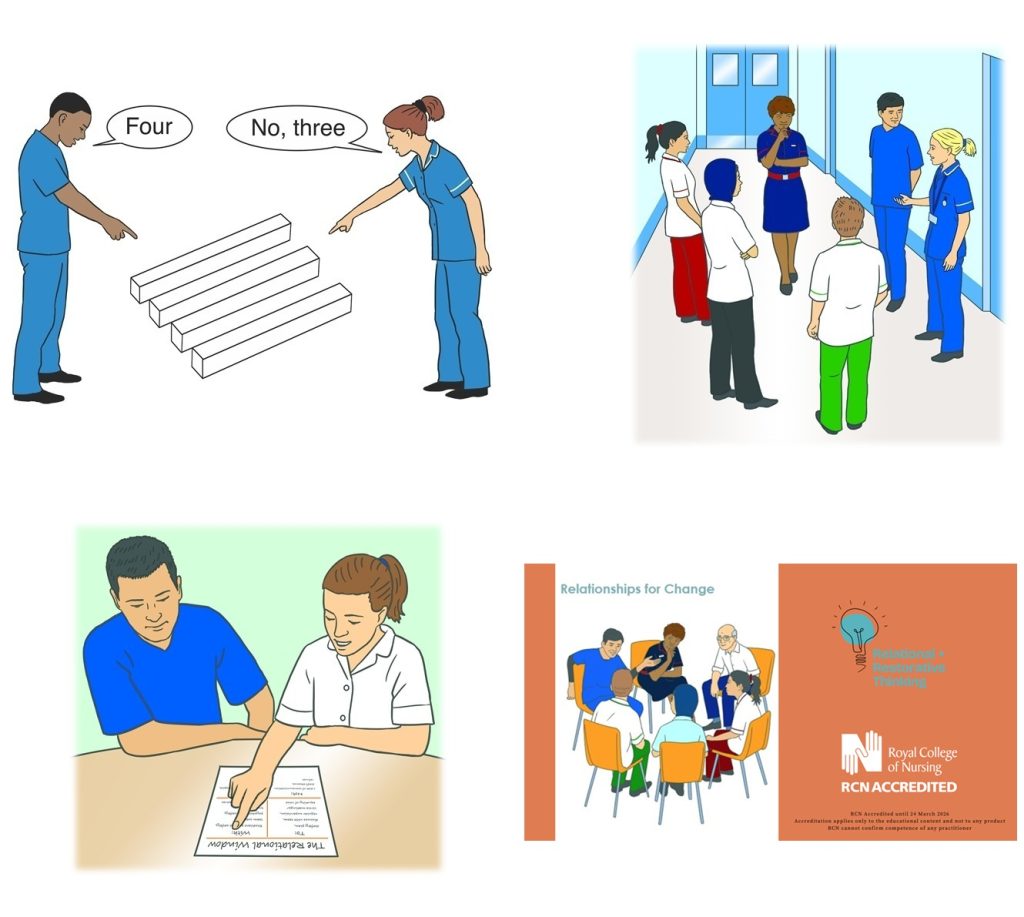
Learning from each other!
We regularly update online courses and include contributions from course participants.
For example, Corina Benjamin, Mental Health Support Team Manager at Nottingham City Council, shares how the Relational Window has helped to refine her practice.
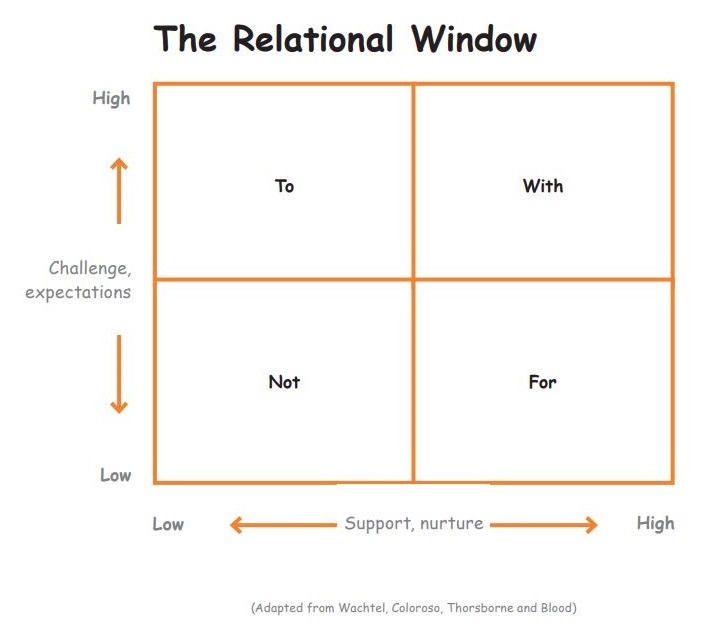
Relationships for Change
Online, on-demand course; 12-month access
Accredited by the Royal College of Nursing (5 hours CPD).
Participants progress through a series of structured modules, gaining practical tools and techniques they can immediately apply within their team/department/organisation
Learn about relational and restorative practice in your own time, at your own pace. Each module is designed to build lasting improvement skills at a sustainable pace.
Download our brochure here.
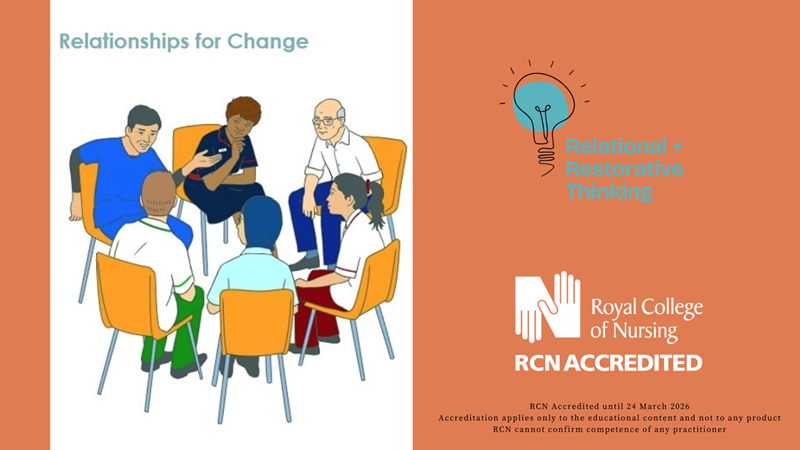
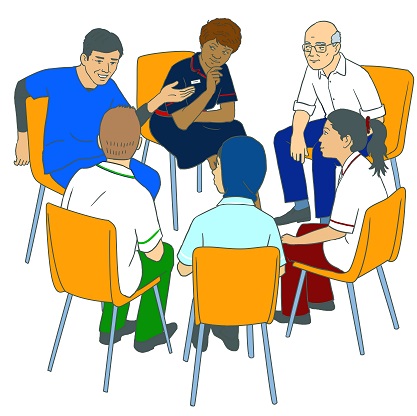
Face to face workshops
Our team facilitates in-person training, 1-3 days in length with individual NHS Trusts, Children’s and Adult Services.
We also run open relational and restorative practice workshops. Our next open course is for Professional Nurse Advocates and Professional Midwifery Advocates.
Download the brochure here.
What will you learn?
- Develop the practical aspects of planning and facilitating restorative supervision sessions.
- How to enable a colleague/colleagues to balance challenge and support to find their way through problems.
- Phrases and techniques that enable solution-focused discussions with colleagues, patients and their families.
What is Restorative and Relational Practice?
Podcast 1, November 11th 2024
This is our first ‘relational podcast’, an introduction to the series. We’ll post more here as we record them, so watch this space!
1. What is Restorative and Relational Practice?
2. From Justice to Practice
From Justice to Practice
Podcast 2, December 4th 2024
Our second ‘relational podcast’ explains the origins of restorative practice and how restorative and relational practice can help us to rediscover the ability to sit together, hold each other to account in a fair and open way and figure out what to do next.
The Coffee Pot
Podcast 3, December 11th 2024
My colleague found a dirty coffee pot left on her workplace desk, on purpose. Here’s what happened next.
3. The Coffee Pot
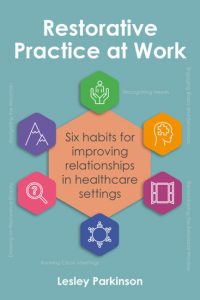
Restorative Practice at Work: Six habits for improving relationships in healthcare settings
Demonstrates how anyone working in healthcare can draw on restorative practice to develop six habits that improve relationships and help to foster compassionate and inclusive workplace cultures.
Order here.
What is Restorative Practice?
This video is a short introduction to restorative practice for all settings.
